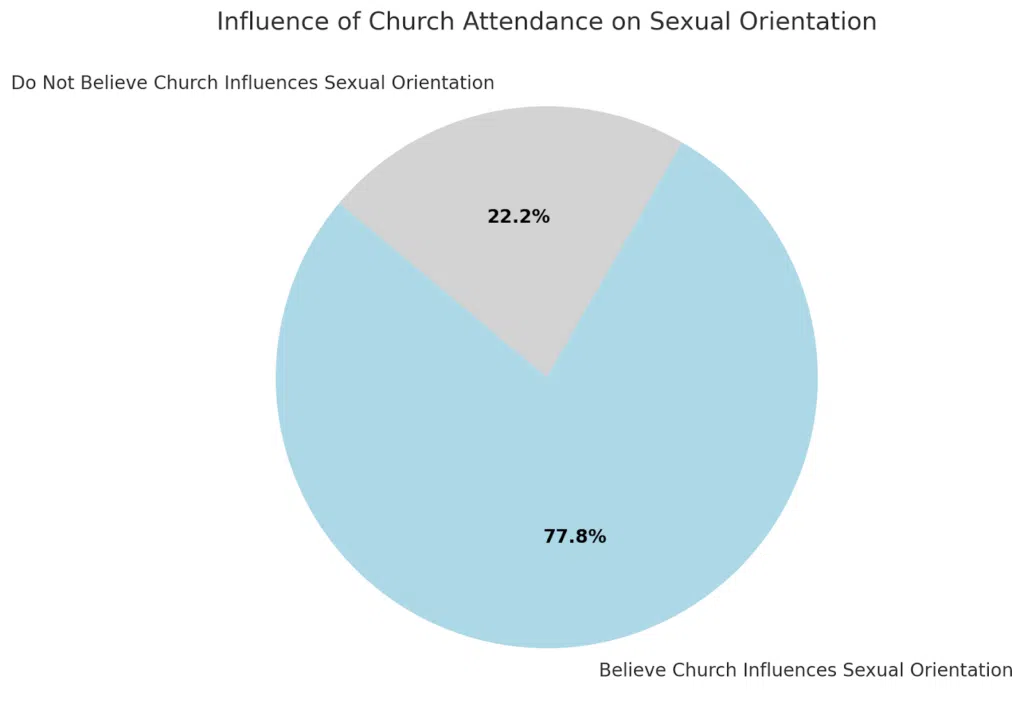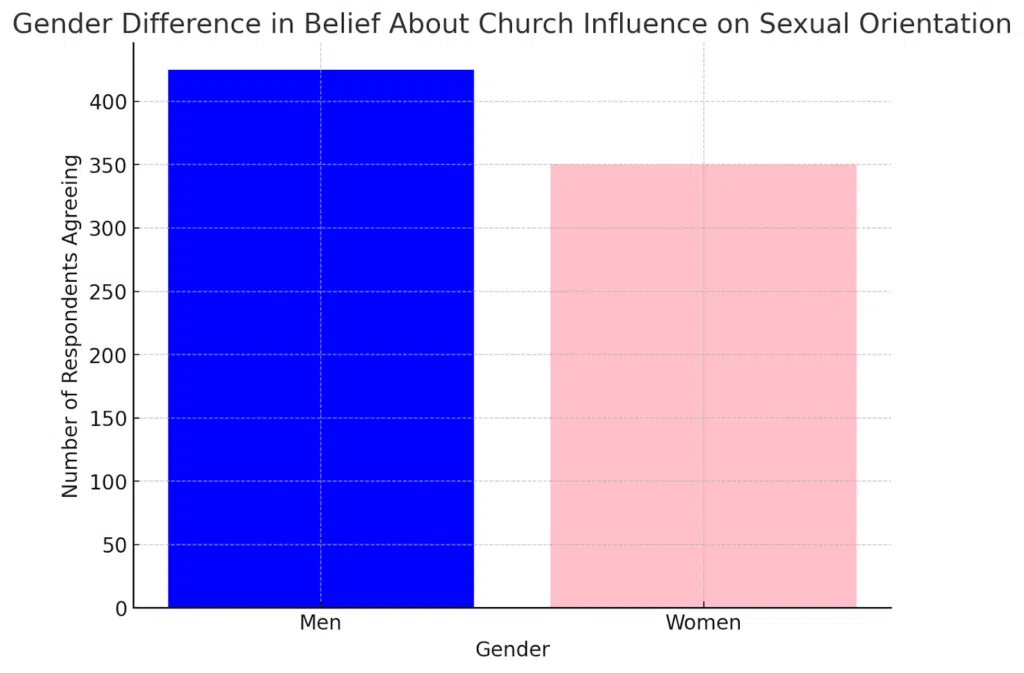Blog » Becoming a Coach » Going to Church Makes You Less Gay – Survey finds YES
Going to Church Makes You Less Gay – Survey finds YES
In a rapidly changing world, understanding the nuances of personal beliefs and behaviors is more important than ever. A recent survey by The Coach Foundation, encompassing 1000 individuals from first-world countries like the US, UK, and Australia, sheds light on a thought-provoking topic: the perceived impact of religious practices, particularly church attendance, on sexual orientation..

Survey Overview
This survey uniquely focuses on a diverse group of participants, splitting evenly between genders and including a wide range of ages and backgrounds. The objective was to explore the relationship between religious practices and perceptions of sexual orientation.
Key Findings
- 77.8% of Respondents Believe Going to Church Can Influence Sexual Orientation: Out of 1000 participants, approximately 778 individuals feel that regular church attendance can impact one’s sexual orientation.
- Gender Disparity in Beliefs: The survey reveals a significant gender difference in this belief. About 85% of men (425 out of 500) hold this view, while this number is slightly lower among women, with around 70% (350 out of 500) agreeing.
- Variation Across Age Groups: Interestingly, the belief seems to have a strong correlation with age, with older participants more likely to agree compared to younger ones.

8 out of 10: Perceived Lower Gay Presence Among Churchgoers
The results of the survey shed light on the profound influence that cultural and societal norms have on personal beliefs. It becomes evident that across many societies, religious institutions have historically played a substantial role in shaping individuals’ perspectives on matters of sexuality and morality. The striking statistic of 77.8% of respondents believing that regular church attendance can influence one’s sexual orientation underscores a deep-rooted connection between religious practices and personal identity. This link between religion and sexuality has persisted for generations and highlights the enduring influence of cultural and societal values.
A notable revelation from the survey is the pronounced gender disparity in beliefs regarding the impact of church attendance on sexual orientation. Approximately 85% of men, constituting 425 out of 500 male respondents, subscribe to this notion, while among women, the number is somewhat lower, with around 70% (350 out of 500) in agreement. This discrepancy raises important questions about the role of societal expectations and pressures related to gender. It prompts us to explore how these gender norms intersect with religious and cultural beliefs. Why do men and women hold differing perspectives on this matter, and how might societal expectations contribute to this divide? Further research into the underlying reasons for these disparities could provide valuable insights into the complex interplay between gender, religion, and sexual identity.

Conclusion
This study by The Coach Foundation opens a window into the complex interplay between religion, culture, and personal beliefs. It highlights the diverse perspectives present in modern society and underscores the need for ongoing dialogue and understanding in matters of personal identity and belief systems.
Methodology
The survey, conducted in January 2024, targeted a balanced demographic of 1000 individuals from various first-world countries, ensuring a comprehensive and inclusive set of data.

ABOUT SAI BLACKBYRN
I’m Sai Blackbyrn, better known as “The Coach’s Mentor.” I help Coaches like you establish their business online. My system is simple: close more clients at higher fees. You can take advantage of technology, and use it as a catalyst to grow your coaching business in a matter of weeks; not months, not years. It’s easier than you think.
AS SEEN ON
0 Comment